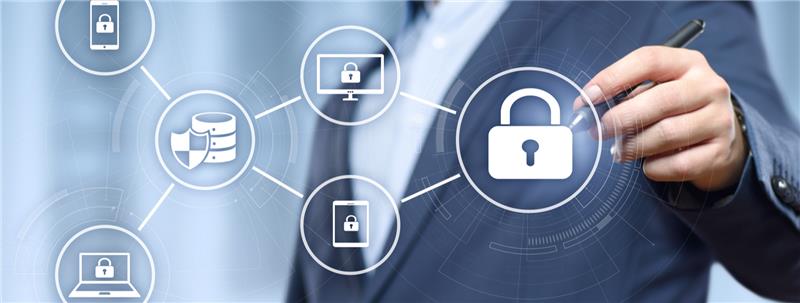Small business cybersecurity – your must-haves
Every business is vulnerable to cyberattacks and data breaches. Smaller businesses are especially vulnerable because data loss can severely damage their reputation and financial bottom line. Although cybersecurity comes in many shapes and sizes, there are a few things that no small business should be without.
Here are 9 cybersecurity must-haves for any successful SMB.
Strong firewalls
A firewall is the first line of defense against hackers. It screens traffic and helps prevent outsiders from accessing your private network and business data. Always have firewalls enabled and make sure employees maintain up-to-date firewalls on their home devices when they work remotely.
Threat response planning
It’s important that you outline a proper cybersecurity plan for responding to a network crisis in your workplace. Having a plan means if there’s a security breach or data is corrupted, you know exactly how to contain the threat and mitigate the damage. Laying out a step-by-step security response plan saves time and resources when you experience a network problem.
Preparing a cybersecurity action plan should be a top priority for all small businesses, so if it’s not in your wheelhouse, it makes sense to ask an expert for assistance. Make it compulsory for employees to read this plan and update it regularly.
Mobile device strategy
Remote working is increasingly common, and employees use smartphones, laptops and tablets to access your business network resources, documents and data outside the workplace. Make sure all company-owned and BYOD devices used for mobile work are securely password-protected and loaded with the latest security software.
It’s also a best practice to provide guidelines for those employees working from home offices or traveling for business. Employees should know exactly what to do, and whom to report to if they lose a mobile device or suspect there’s been a security breach.
Trained staff
It’s important to invest in regular cybersecurity training for your staff. At a minimum, your team should be familiar with the business’s internal security policies and how to avoid a data breach and report any suspicious activity.
Make sure employees know never to reveal confidential information, such as passwords, trade secrets, or financial data, or to download attachments without first checking their authenticity.
Antivirus software
Because digital threats are constantly evolving, strong, reliable antivirus software is critical to any cybersecurity policy. You should also maintain the latest web browser and operating system, where possible. Download and run security updates as soon as they become available to get the latest protection.
Regular backup
The importance of an effective backup system cannot be overstated. Backup data can be stored offline, in the cloud, or offsite. It’s good practice to back up data on a weekly basis, at least.
Not sure what data to back up or how often? Core operational data that keeps your business running probably includes:
- Databases and customer information
- HR and payroll files
- Accounting, legal and compliance data
- Project spreadsheets and documents
- Service records or history
- Sales and marketing data and resources
- Any other application data or information required to run your business — this reduces downtime if there’s a data breach or files are corrupted
Wireless network security
Encrypting your business Wi-Fi network makes it harder for intruders to find – don’t broadcast the network name and always password-protect it. If you want to give visitors or contractors access to the internet on your business premises, set up a separate public network for them to use. Having separate Wi-Fi networks ensures that if anyone breaches the public network, they can’t access the company’s primary operational network.
Controlled access
Ensure that only employees have access to network equipment, personal workstations, portable devices, and laptops. Give every employee their own secure account and delete these accounts when employees leave the business. This last step prevents former staff from accessing data or programs they’re no longer entitled to view.
IT specialist help
Even the most robust security policy can go wrong, and that’s why it’s so important to have an IT support team on hand. IT specialists advise you on effective cybersecurity strategies for your business needs and they help mitigate losses if there’s a breach or technical failure. For more information on how TFE can help with your business cybersecurity needs, contact us today










